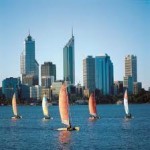 Brian Greig OAM looks at Australia’s evolution towards marriage equality:
Brian Greig OAM looks at Australia’s evolution towards marriage equality:
Last weekend, the Queensland branch of the Australian Labor Party passed a resolution in support of same-sex marriage and called on the Gillard Government to end this Commonwealth discrimination.
Queensland Labor has now joined other ALP branches in Tasmania, South Australia, the ACT, the Northern Territory and Victoria in expressing this sentiment, putting further pressure on its Federal wing to recognise that it’s on the wrong side of history.
This weekend, the WA branch will be debating the same question and looks set to pass a similar resolution as momentum for equality grows.
WA Labor has a strong history in this area. It tried three times in the 1970s and 1980s to decriminalise homosexuality, but all attempts were blocked by conservatives in the Upper House.
It’s hard to believe now, but until 1989 male homosexuality was a criminal offence in WA and the penalty was 14 years in prison, with or without whipping.
This 110-year-old law was inherited from Victorian England and while it was not being used, its existence hung as a threat over the heads of gay men and sent a highly damaging message to the wider community.
This law had an impact on gay people psychologically by deeming them to be criminals and defining them as bad and dangerous. Many homosexual people feared for their safety or jobs and it pushed gay people deeply into the closet.
There were no anti-discrimination laws at this time – it would take another 12 years for that to happen.
Homosexuality was partially decriminalised in 1989, but the clumsy legislation was far from perfect and as a result the next 12 years would prove to be difficult for gay people.
WA now had the highest age of consent in the world at 21, there was no partnership recognition and it remained lawful to discriminate against us in employment, accommodation and the provision of goods and services. All the myths and propaganda about gay people were reflected in laws that defined us as subhuman or made us vulnerable to discrimination and powerless to redress it.
The breakthrough came in 2001 when attorney-general Jim McGinty pressed ahead with a package of legislation to repeal all the anti-homosexual laws that had evolved over the previous century. In their place would be an equal age of consent, anti-discrimination protections, access to adoption and the Family Court and de facto recognition for same-sex couples.
As we entered a new century, WA went from having some of the worst anti-gay laws in the world to having some of the best legal protections around. Despite the doomsayers claiming this “radical reform” would cost Labor the next election, the Gallop government was returned with an increased majority. Voters like leadership.
And although we now have a Liberal- National Government, to their great credit both Premier Colin Barnett and deputy Brendon Grylls have pledged not to repeal the reforms.
Of course, it would be wrong to suggest that Labor can take all the credit for this. While it has been the party most likely to cement change, it has been individual activists and community lobby groups which led the charge for reform. Just ordinary people with real stories and a passion for fairness. At other times, Labor’s commitment to reform was made more enthusiastic by its loss of support to the Democrats and Greens. But as a major party, the community has generally looked to it as the main vehicle for social reform.
I joined the Gay Law Reform Group at the age of 22 in 1989. Since then I have witnessed homosexual people no longer being regarded as criminals or targets for discrimination while State and Federal law now recognises our rights as de facto couples.
Equal marriage is now the finish line in what has been a long race for equality by a relay team of inspiring community campaigners over two decades.
And while there are opponents to same-sex marriage, I find they are usually the very same people who opposed decriminalisation in 1989 and the Equal Opportunity laws of 2001.
Their arguments were wrong then and they’re wrong now.
Until we are treated equally under the Marriage Act, then the law will still define us as second-class citizens.
Delegates at this weekend’s ALP conference have only to ask themselves one simple question: given that same-sex couples have exactly the same rights and responsibilities as married couples under both State and Federal law, why can’t they have a marriage licence?
Brian Greig was awarded an OAM in the Queen’s Birthday Honours for his social justice work for the gay and lesbian community.
For the original article, click here
